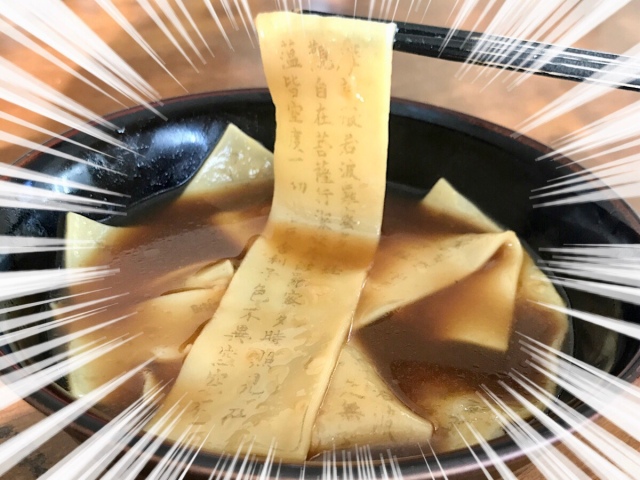
Food for thought, in more ways than one.
We’ve eaten a lot of noodles in our time, but this week we came across a particularly unusual type we’d never tried before. What makes them so special is not necessarily the broth, nor is it the chef who makes them — it’s what’s written on them that give them their special magic.
Yes, you did read that correctly. These noodles are some of the most elegant we’ve ever seen as they’re adorned with beautiful calligraphy, and we purchased them from the souvenir corner at the “Nittanosho Kanzantei” Japanese restaurant in Ota City, Gunma Prefecture.
Unfortunately the restaurant doesn’t actually have the noodles on the menu for diners, but we were fine with eating them in the privacy of our own home. That’s because what’s written on these noodles is the heart sutra, which is often chanted by monks at funerals or memorial services, or read aloud by Buddhists, and sometimes even copied on paper as a meditative practice at temples.
Whichever way you’ve been introduced to it, the heart sutra is one of the most-well known in Japan, and it centres around the concept of emptiness. Some key passages include: “The Insight That Brings Us to the Other Shore” and “This body is emptiness, and emptiness is this body“.
That’s definitely food for thought, and best enjoyed in the quietness of one’s home rather than a busy restaurant filled with other diners.
The entire 260-character sutra is printed on thick strips of udon wheat noodles, and it’s advised that you spend a moment reading the sutra on the included leaflet, as well as the noodles, before boiling them.
The leaflet includes the full text with furigana lettering to help read the more difficult kanji, and a modern language translation guide for those being introduced to the sutra for the first time.
It seemed immoral to boil the sutra in boiling water, but that’s what these were designed for, so we popped them in a pot of boiling water as instructed.
The instructions suggest adding vegetables and meat to the noodles to create a more filling meal, but we decided to enjoy the noodles on their own, with the dashi broth included in the pack.
Once the noodles were ready, we poured them out into a bowl, and were amazed to see the sutra hadn’t disappeared — the characters were still visible, although they had faded somewhat, giving them a more mysterious aura.
This bowl of mysterious noodles looked like something you’d see in an anime rather than real life. We took a deep breath and exhaled before bowing our heads and slurping up the first of our heart sutra noodles.
The flavour was incredibly impressive — the noodles had the perfect amount of chewiness, and the soup was thick and flavourful, creating a heavenly match for the udon.
It was delicious to eat, and it felt great going down. The whole process of bringing religion to food in this way really made us stop and taste the noodles in a way we never really have before.
If you’d like to consume a Buddhist sutra and become one with it, this udon is definitely worth a try, and at 1,620 yen (US$11.80) for a pack of three, it’s worth stocking up on.
Reference: Nittanosho
Images © SoraNews24
● Want to hear about SoraNews24’s latest articles as soon as they’re published? Follow us on Facebook and Twitter!
[ Read in Japanese ]

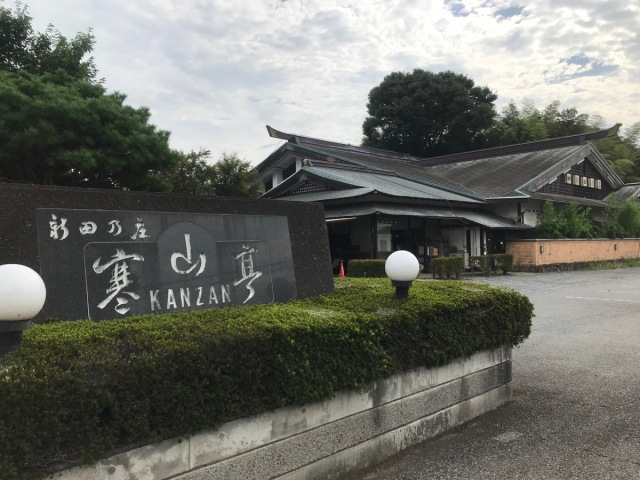
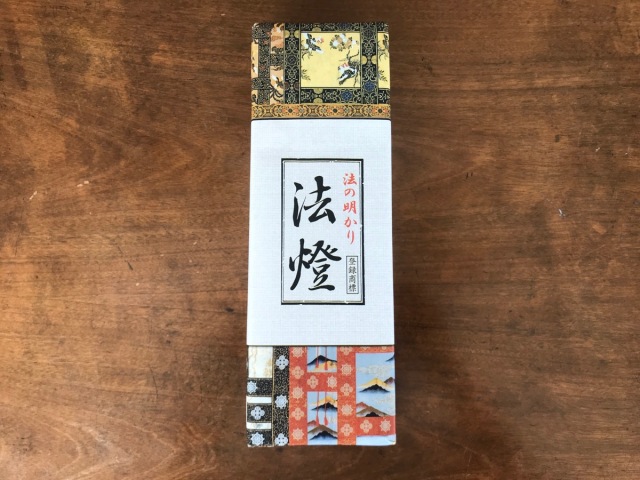
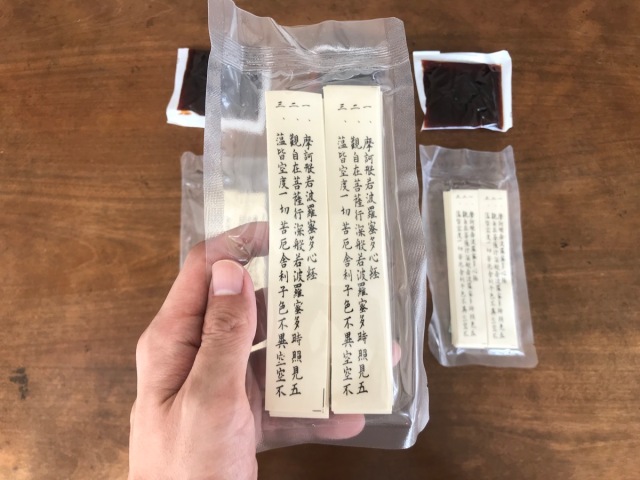

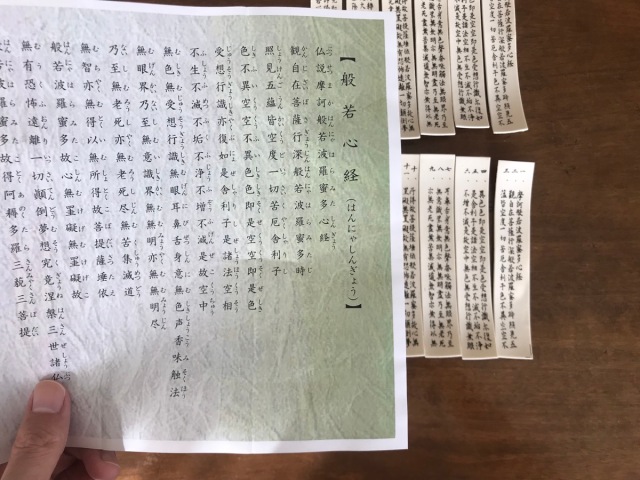
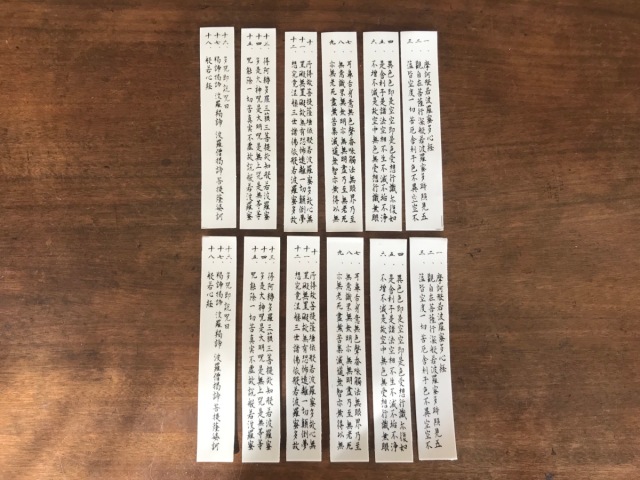
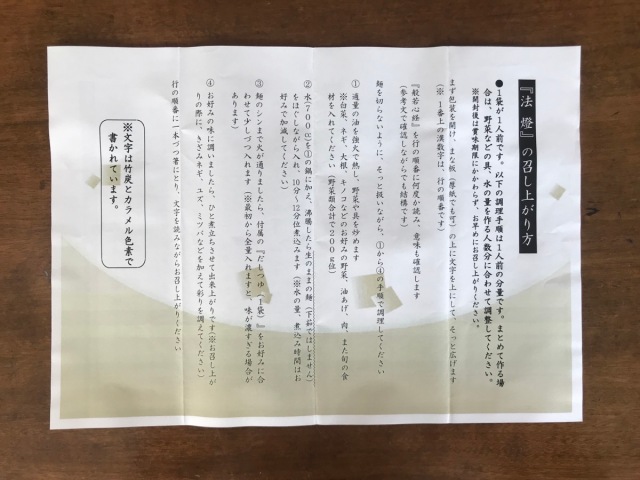
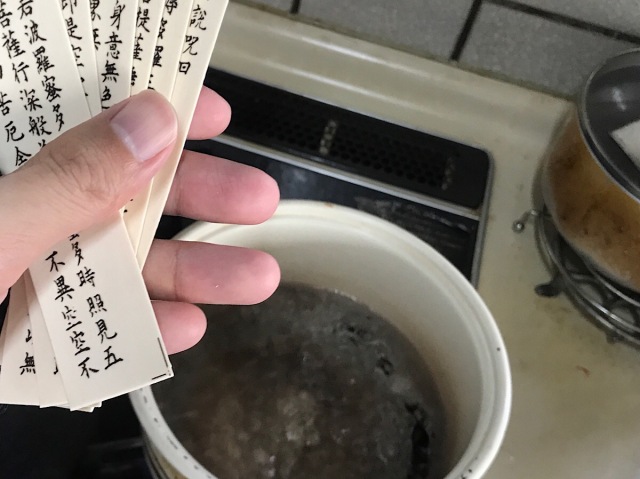
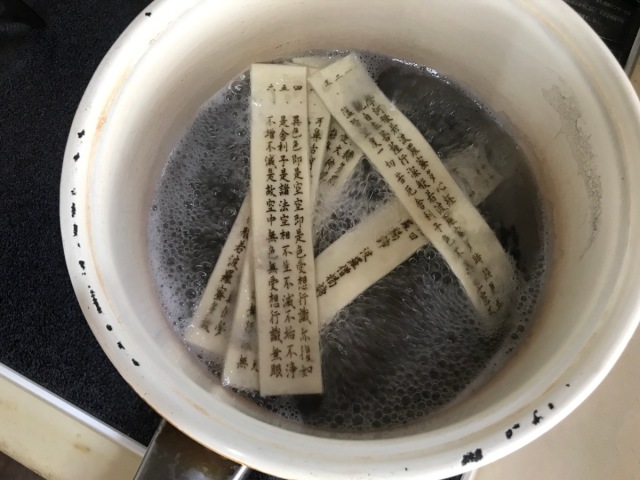
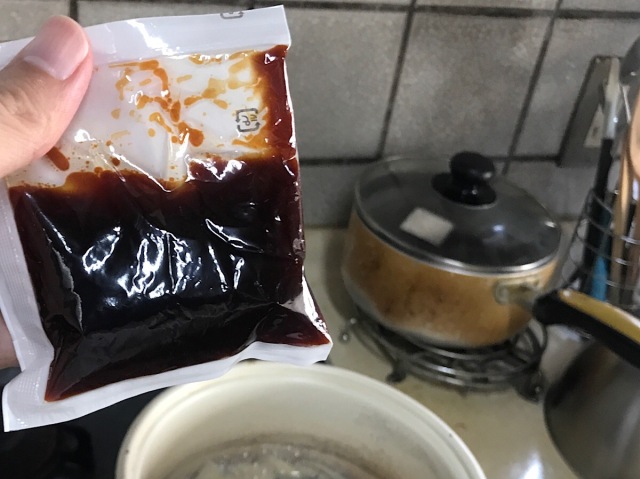
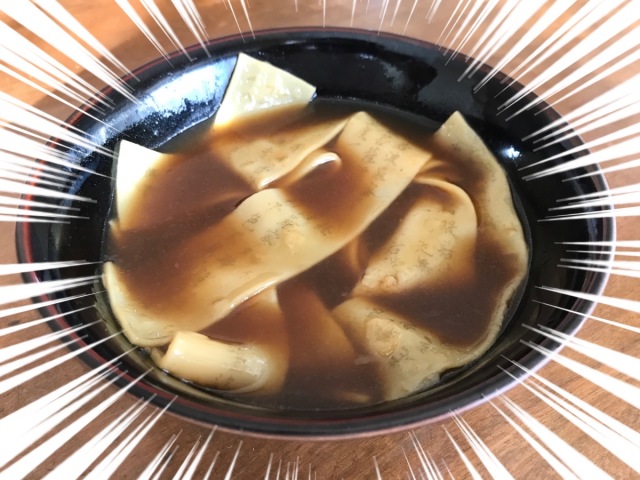

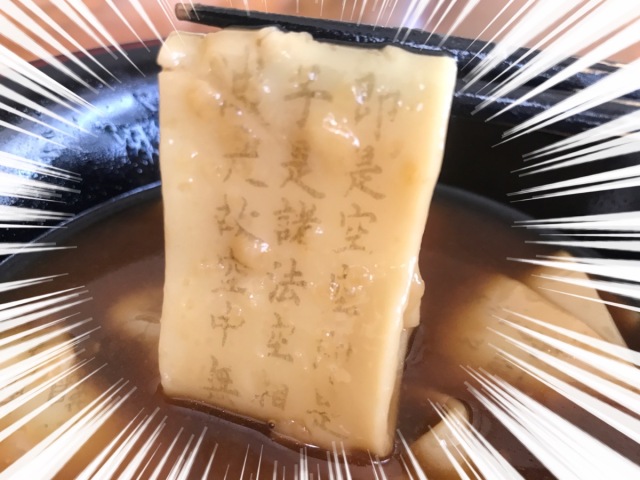
 Buddhist temples in Japan get digital upgrade with new techno wooden fish【Video】
Buddhist temples in Japan get digital upgrade with new techno wooden fish【Video】 Cup of noodles for vegans! Japanese Zen Buddhist temple starts selling instant soba and udon
Cup of noodles for vegans! Japanese Zen Buddhist temple starts selling instant soba and udon Kyoto Noodle House Serves One Big, Long Noodle
Kyoto Noodle House Serves One Big, Long Noodle Japanese restaurant serves noodles that you fold and eat【Taste test】
Japanese restaurant serves noodles that you fold and eat【Taste test】 Celebrate a belated Pokémon Slowpoke Day by slurping up some exclusive udon from Kagawa!
Celebrate a belated Pokémon Slowpoke Day by slurping up some exclusive udon from Kagawa! Cherry blossom forecasts map shows Japan’s OTHER sakura season is starting right now
Cherry blossom forecasts map shows Japan’s OTHER sakura season is starting right now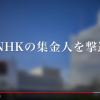 Anti-NHK activist recommends “magic words” that will drive away fee collectors instantly
Anti-NHK activist recommends “magic words” that will drive away fee collectors instantly Here comes a new katsudon: ice cream katsudon?!?
Here comes a new katsudon: ice cream katsudon?!? Visit the mythical cave that hid the Sun Goddess in Japanese mythology
Visit the mythical cave that hid the Sun Goddess in Japanese mythology Man arrested in rural Japan on charges of leaving obscene DVDs in stores as gifts for “healthy men”
Man arrested in rural Japan on charges of leaving obscene DVDs in stores as gifts for “healthy men” Poké Ball cakes here for limited but long time to celebrate Pokémon franchise’s 30th anniversary
Poké Ball cakes here for limited but long time to celebrate Pokémon franchise’s 30th anniversary Which Japanese beef bowl chain’s near-identical demon grater onioroshi ponzu gyudon is the best?
Which Japanese beef bowl chain’s near-identical demon grater onioroshi ponzu gyudon is the best? We followed Tokyo’s mystery walking map and ended up creating our own bar-hopping adventure
We followed Tokyo’s mystery walking map and ended up creating our own bar-hopping adventure And now, we eat a bear paw we bought in Japan’s Chiba Prefecture【Taste test】
And now, we eat a bear paw we bought in Japan’s Chiba Prefecture【Taste test】 Ghost in the Sheel goes traditional with Japanese porcelain Tachikoma robots, only 50 to be made
Ghost in the Sheel goes traditional with Japanese porcelain Tachikoma robots, only 50 to be made Yokai are descending upon Tokyo this spring in the latest immersive art experience
Yokai are descending upon Tokyo this spring in the latest immersive art experience Japan’s Naruto theme park now offering real-world version of Minato’s kunai ninja weapon
Japan’s Naruto theme park now offering real-world version of Minato’s kunai ninja weapon Japan has a new bar just for people thinking about quitting their jobs, and the drinks are free
Japan has a new bar just for people thinking about quitting their jobs, and the drinks are free New Studio Ghibli stamps leave an impression on your stationery…and your heart
New Studio Ghibli stamps leave an impression on your stationery…and your heart Japan cherry blossom forecast update moves up sakura dates for many parts of the country
Japan cherry blossom forecast update moves up sakura dates for many parts of the country Archfiend Hello Kitty appears as Sanrio launches new team-up with Yu-Gi-Oh【Pics】
Archfiend Hello Kitty appears as Sanrio launches new team-up with Yu-Gi-Oh【Pics】 Studio Ghibli turns My Neighbour Totoro characters into bag charms for everyday adventures
Studio Ghibli turns My Neighbour Totoro characters into bag charms for everyday adventures If you haven’t tried an antenna shop in Japan, you’re missing out
If you haven’t tried an antenna shop in Japan, you’re missing out Studio Ghibli releases Spirited Away bags in Japan, based on a mysterious festival
Studio Ghibli releases Spirited Away bags in Japan, based on a mysterious festival Morning-after pill finally available in Japan without a prescription, must be taken at pharmacy
Morning-after pill finally available in Japan without a prescription, must be taken at pharmacy Starbucks Japan releases new drinkware and goods for Valentine’s Day
Starbucks Japan releases new drinkware and goods for Valentine’s Day Japan releases first official sakura cherry blossom forecast for 2026
Japan releases first official sakura cherry blossom forecast for 2026 10 times to avoid traveling in Japan in 2026
10 times to avoid traveling in Japan in 2026 Starbucks Japan releases new Frappuccino and latte for Valentine’s Day
Starbucks Japan releases new Frappuccino and latte for Valentine’s Day Our 52-year-old pole dancing reporter shares his tips for achieving your New Year’s exercise goal
Our 52-year-old pole dancing reporter shares his tips for achieving your New Year’s exercise goal China’s don’t-go-to-Japan warning looks to be affecting tourist crowds on Miyajima
China’s don’t-go-to-Japan warning looks to be affecting tourist crowds on Miyajima Studio Ghibli releases new “komorebi” plush toys from Princess Mononoke and Spirited Away
Studio Ghibli releases new “komorebi” plush toys from Princess Mononoke and Spirited Away Ramen restaurant’s English menu prices are nearly double its Japanese ones, denies discriminating
Ramen restaurant’s English menu prices are nearly double its Japanese ones, denies discriminating Survey asks foreign tourists what bothered them in Japan, more than half gave same answer
Survey asks foreign tourists what bothered them in Japan, more than half gave same answer Japan’s human washing machines will go on sale to general public, demos to be held in Tokyo
Japan’s human washing machines will go on sale to general public, demos to be held in Tokyo We deeply regret going into this tunnel on our walk in the mountains of Japan
We deeply regret going into this tunnel on our walk in the mountains of Japan Studio Ghibli releases Kodama forest spirits from Princess Mononoke to light up your home
Studio Ghibli releases Kodama forest spirits from Princess Mononoke to light up your home Major Japanese hotel chain says reservations via overseas booking sites may not be valid
Major Japanese hotel chain says reservations via overseas booking sites may not be valid Put sesame oil in your coffee? Japanese maker says it’s the best way to start your day【Taste test】
Put sesame oil in your coffee? Japanese maker says it’s the best way to start your day【Taste test】 No more using real katana for tourism activities, Japan’s National Police Agency says
No more using real katana for tourism activities, Japan’s National Police Agency says Starbucks Japan reveals new sakura drinkware collection, inspired by evening cherry blossoms
Starbucks Japan reveals new sakura drinkware collection, inspired by evening cherry blossoms Updated cherry blossom forecast shows extra-long sakura season for Japan this year
Updated cherry blossom forecast shows extra-long sakura season for Japan this year Noodles Go Gourmet: We Sample “Udon Sashimi” in Tokyo
Noodles Go Gourmet: We Sample “Udon Sashimi” in Tokyo Shake Udon one-hand takeout bukkake noodle cups look to shake udon eating in Japan【Taste test】
Shake Udon one-hand takeout bukkake noodle cups look to shake udon eating in Japan【Taste test】 Japanese woman dreams of her late grandfather eating noodles, gets a sweet surprise in the morning
Japanese woman dreams of her late grandfather eating noodles, gets a sweet surprise in the morning Japanese restaurant chain serves up super thick soba noodles in Tokyo
Japanese restaurant chain serves up super thick soba noodles in Tokyo Popcorn shrimp udon, as in noodles with popcorn and shrimp, now on the menu in Tokyo【Taste test】
Popcorn shrimp udon, as in noodles with popcorn and shrimp, now on the menu in Tokyo【Taste test】 Japanese restaurant serves up noodles in stunning ice cube bowls
Japanese restaurant serves up noodles in stunning ice cube bowls White Curry Udon: A new take on noodles discovered at a Japanese airport
White Curry Udon: A new take on noodles discovered at a Japanese airport Pitch-black Black Belt udon noodles are a visual roundhouse, but do they taste good?【Taste test】
Pitch-black Black Belt udon noodles are a visual roundhouse, but do they taste good?【Taste test】 Investigating the mysterious “Shake Pippi” at Marugame Seimen udon restaurants
Investigating the mysterious “Shake Pippi” at Marugame Seimen udon restaurants Black Thunder Tempura from Japanese udon chain is not a good partner for noodles
Black Thunder Tempura from Japanese udon chain is not a good partner for noodles Flush your prayers down the toilet at this unique Japanese temple
Flush your prayers down the toilet at this unique Japanese temple Retro vending machine corner is a hidden gem in the Japanese countryside
Retro vending machine corner is a hidden gem in the Japanese countryside Iconic instant cup noodle restaurant on Shibuya Station platform closes
Iconic instant cup noodle restaurant on Shibuya Station platform closes Top Japanese instant noodle maker steps up its rice ball game 【Taste test】
Top Japanese instant noodle maker steps up its rice ball game 【Taste test】 Japanese vending machine mecca: Around 100 rare retro machines await you at this unusual location
Japanese vending machine mecca: Around 100 rare retro machines await you at this unusual location Sushi Ramen restaurant serves up the best of both worlds in one epic Japanese meal
Sushi Ramen restaurant serves up the best of both worlds in one epic Japanese meal
Leave a Reply